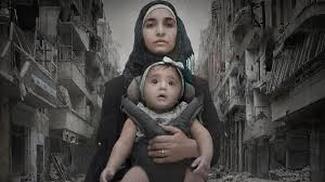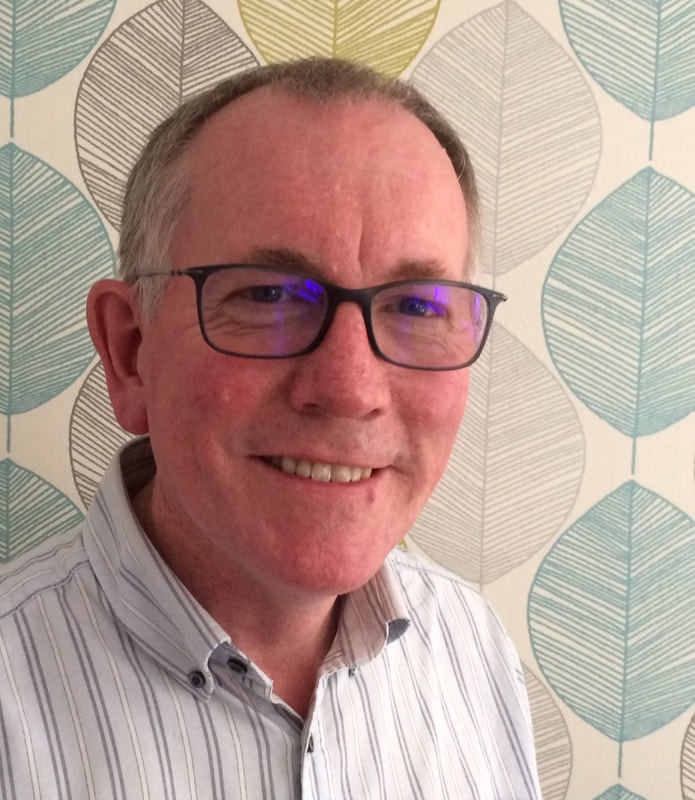 It is not easy to be recommending people to watch a film that is, in places, almost impossible to watch, but I do! “For Sama” is a documentary of life for a family and a community living through the siege of Aleppo, Syria. On the one hand it could be viewed as a place of destruction and death, yet I have not viewed a film that is in reality more full of hope than this. I imagine that, for many, hope is most often a lifting of the spirit and a strong sense of optimism. This documentary demonstrates some of the worst in human nature but, more importantly, also some of the best in human nature and a profound hope that faces the inevitability of death. I find much in this that is part of the Christian story, as rehearsed between Palm Sunday and Easter. As the story of the siege of Aleppo plays out in a largely Muslim setting, I am encouraged that the Christian story is not exclusive, and that the hope God offers through the life, death and resurrection of Jesus is indeed universal. Rather strangely, ‘For Sama’ has gained attention through the awards offered by the film industry (Cannes, the BAFTAs and Oscars etc.). While this glitzy world is so far removed from the situation in Syria, it has helped fulfil the purpose of the film to give identity to people who are disregarded by those in positions of power. The film’s creator Waad al-Kateab had a dress made for the Oscars award ceremony emblazoned with words from an Arabic poem ‘We dared to dream and we will not regret dignity.’ - there is no shame in seeking and holding on to one’s identity and purpose. The reality of the situation in Aleppo, particularly during the days of the siege, that is displayed by the film ‘For Sama’ might be described by many as hopeless. A small population standing against the regime of Bashar al-Assad and the threats of Russian air power, amidst threats from competing militia groups in the city, yet continuing to find within themselves and their faith in God the strength and the hope to seek life. It is not rosy. It is gritty and it is very real. At the opening of the film we are thrust into the risky public protests of students and others. They loudly celebrate the simple act of protest, which has not been possible before, and in this glimpse a hope that their revolution might succeed. This story of a city and its people is also very personal. The student Waad keeps encountering Hamza, a doctor who has committed to providing much needed hospital care to the besieged and constantly threatened population of East Aleppo. He is a subject for Waad’s filming, but common cause, shared hardship and hope draw them together. That everyday life, relationships and love continue in the dust and destruction is the defiant hope that undergirds the wider story the film tells. Waad and Hamza get married and there is space for the celebration with some of the trimmings you would expect, joy and dancing. But life is punctuated continuously by bombing attacks and the call to attend to the injured and dying. The bloody scenes of death and destruction are not easy viewing, but even here hope lies in the tireless efforts of the medics and the desperate desires of family that life should prevail. There is the regular invocation of God to be active in what is happening - ‘God help us!’ - and the chorus of ‘God be praised’ when life is restored. And it reaches beyond, for even when a mother is carrying her dead son away she is encouraged to ‘Pray for him’. It is in the midst of this chaos that Sama is born and the natural hope of an infant discovering life and a new world is evident. The greater hope is witnessed, however, in an emergency caesarean birth as the mother in rushed in having been caught in a bomb attack. The medical team make long and vigorous efforts to encourage the first breath of a very blue baby. Both mother and baby survive and one realises the hope that lies in perseverance. Hope is not always obvious. It is likely seen when the family are able to travel to Turkey to visit elderly parents. However, there is more hope when the family make the decision to return to Aleppo as a family in order to continue their work in the hospital and filming the story of a suffering people. How hope-less would it have been if the people of Aleppo were abandoned by such committed and principled people? There are the scenes of desperate digging in the rubble of bombed-out buildings, the final scenes of a convoy leaving the city for a safe destination, within which hope goes hand-in-hand with great risk and sacrifice. If you watch this film it is certain that you will discover other examples of hope writ large in the midst of human catastrophe. The strength of the human spirit simply expresses the presence of the Spirit of God. I cannot think that hope comes from any other source. Watch 'For Sama' on Channel4 or via AmazonPrime. It is due in cinemas later in 2020. A Channel4 'How to Change the World' interview between Waad and Hamza al-Kateab and Krishnan guru-Murthy can be viewed here.
0 Comments
|
Archives
March 2024
|
 RSS Feed
RSS Feed
